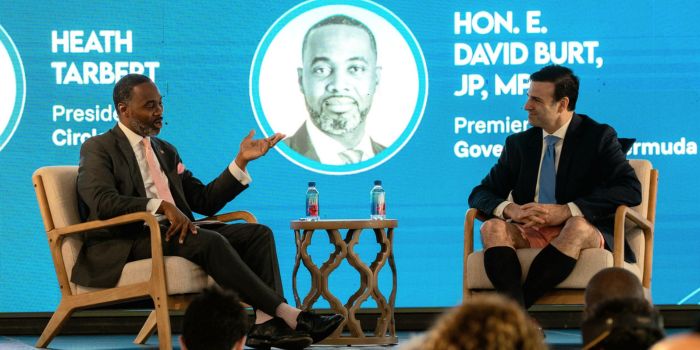Trump's Trade War Strategy: A 'Puppet Master' Approach or Economic Gamble?

President Trump's unconventional approach to trade negotiations has sparked intense debate and global economic uncertainty. Is he a shrewd 'puppet master' orchestrating a complex strategy, or is his trade war a risky gamble with potentially damaging consequences? Financial Times Columnist Gillian Tett joins NBC News' Katy Tur to dissect Trump's tactics, analyze the Federal Reserve's recent decision to hold interest rates steady, and explore the broader implications for the global economy.
The 'Puppet Master' Perception
The moniker 'puppet master' has been applied to Trump by some observers who believe he's deliberately employing disruptive tactics to extract concessions from trading partners. This theory suggests that the seemingly erratic nature of his negotiations, including sudden tariff impositions and shifting demands, is a calculated strategy to pressure countries into accepting favorable terms. Proponents of this view argue that Trump's willingness to risk short-term economic pain is a testament to his long-term vision for reshaping global trade.
Analyzing the Trade War's Impact
However, critics argue that Trump's trade war is causing significant damage to the U.S. economy and disrupting global supply chains. Tariffs on imported goods increase costs for businesses and consumers, potentially leading to inflation and slower economic growth. The uncertainty surrounding trade policy also discourages investment and hinders business planning. The recent decision by the Federal Reserve to hold interest rates steady suggests a growing concern about the potential for economic slowdown.
The Federal Reserve's Role
The Federal Reserve's decision to maintain its current interest rate policy is a significant development in the context of the trade war. While the Fed has historically been independent, its actions are closely watched for signals about the health of the economy. Holding rates steady suggests that the Fed is attempting to balance the risks of inflation with the potential for an economic downturn triggered by trade tensions. This careful approach reflects the complex economic landscape.
Gillian Tett's Expert Insights
Financial Times Columnist Gillian Tett brings a wealth of experience and expertise to the discussion. She provides a nuanced perspective on Trump's trade policies, highlighting the potential benefits and risks involved. Tett emphasizes the importance of understanding the underlying motivations behind Trump's actions and the potential for unintended consequences. Her analysis sheds light on the complexities of the global trade system and the challenges of navigating a period of heightened uncertainty.
Looking Ahead
As the trade war continues to unfold, the global economy faces a period of significant volatility. The outcome of these negotiations will have far-reaching implications for businesses, consumers, and governments around the world. Whether Trump's strategy proves to be a masterful stroke or a costly miscalculation remains to be seen, but one thing is certain: the stakes are incredibly high.






